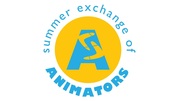Debriefing Aid workers: Promoting good practice in management and support of aid personnel1/11/2016 This manual gives guidelines for those who offer debriefing to people who work overseas (usually in less developed countries) as relief workers, development workers, volunteers, missionaries, peace-keepers or in similar positions. The term ‘aid workers’ is used here to refer to all such workers. Most aid workers report that, on the whole, their time overseas was a good experience, and they are glad they went. Despite this, most aid workers who work overseas for at least six months (as well as many of those who have shorter trips overseas) report that they find it helpful to receive a personal debriefing session on their return home. This is especially true of those who have had stressful experiences overseas, and those who find it difficult to readjust to their own culture after returning home. Personal debriefing sessions generally last approximately two hours, and can have an extremely beneficial effect.
0 Comments
The Comhlámh Code of Good Practice (CoGP) for Volunteer Sending Agencies is a set of standards for organisations involved in facilitating international volunteer placements in developing countries. The focus is to ensure overseas volunteering has a positive impact for the three main stakeholders: the local project and community, the volunteer and the sending agency.
Compass was first published in 2002 within the framework of the Human Rights Education Youth Programme of the Directorate of Youth and Sport of the Council of Europe. The programme was created because human rights education – meaning educational programmes and activities that focus on promoting equality in human dignity – was and remains of incalculable value in shaping a dimension of democratic citizenship for all young people and in promoting a culture of universal human rights. Compass has become a reference manual for many young people involved in value-based youth work and non-formal education. It is currently available in more than 30 languages, ranging from Arabic and Japanese to Icelandic and Basque. In some countries it has become part of the resources for human rights education in schools and in some others it is not possible to use it in schools. The adventures of Compass across Europe often mirror the contrasted reality of human rights education: promoted here and combated there, praised by some and despised by others. Unfortunately there are not many resource materials available for youth workers to deal with this issue. Don Bosco Youth-Net has experience of implementing safeguarding in its activities. Through this publication we want to share this good practice with other youth work organizations, by offering a tool to support the development of safeguarding in their organizations and to create awareness on the topic of safeguarding in working with children and young people. The book exists of three parts: In the first part we research the ethical foundations of safeguarding in working with youth. The second compares the human rights with the Preventive System of Don Bosco and gives impulses for safeguarding in youth work praxis. The third part offers some practical input on how to deal with safeguarding in youth work organizations. The opportunity to live and work overseas is an chance to experience a completely different way of life. As returned development workers and volunteers, there is the potential to use these overseas experiences to continue your own learning as well as raise awareness and take informed actions from home. Through your work and experiences abroad, you will have developed a unique perspective on the effects and causes of global poverty and social injustice that many others may not have. However, your participation in development and global issues does not have to be limited to an overseas experience; rather there is the opportunity for this experience to be a stimulus and a resource for further learning. This toolkit intends to deepen your understanding of the complexities of some of the issues experienced while overseas and to integrate this learning into your life at home. This can be translated into the decisions and choices you make as an individual, as well as getting involved in collective actions, education and campaigns with other people. Youthpass is a new way for participants in the Youth in Action Programme to describe what they have done and to show what they have learnt. (Up until now the only people to have standardised proof of this through a certificate were participants in European Voluntary Service). |
Resource BlogIn this resource blog you will find different categories. The category games gives an overview of documents that can be an inspiration for game playing in practice. Manuals are instruction books. In youth work this often refers to documents indicating a code of good practice , how to deal with certain situations, how to create your own project,... In the category portfolio you will find documents and articles used to create the workbook "VALUE" CategoriesArchives |
- Home
- I want to go to...
- Long-term experience
-
Partners
- Jugend Eine Welt - Austria
- Don Bosco Volunteers - Austria
- Bosco Base - Belgium
- SADBA - Czech Republic
- Aktionszentrum - Germany
- Don Bosco Jeunes - France
- Salesiani per il Sociale - Italy
- DBYnNL - the Netherlands
- SPYS - Malta
- NVU Don Bosco Centar - Montenegro
- Confe Don Bosco - Spain
- Domka - Slovakia
- Društvo mladinski ceh - Slovenia
- Don Bosco Ukraine
- Salesian Youth Ministry - United Kingdom
- Beyond the SEA
- Tools
- Contact & Publicity
DisclaimerThe international secretariat of Don Bosco Youth-Net ivzw is financially supported by the European Union, through its ‘Erasmus+ Youth in Action’-programme, and by the Council of Europe, through its 'European Youth Foundation'. This publication reflects the views only of the author, and neither the Commission nor the Council of Europe can be held responsible for any use which may be made of the information contained therein.
|
|
Copyright © 2024
|



 RSS Feed
RSS Feed
